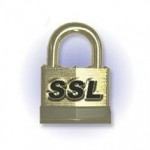 People often get the terms “virtualization” and “cloud computing” confused, believing that they can be used interchangeably when, in fact, they are diametrically opposed.
People often get the terms “virtualization” and “cloud computing” confused, believing that they can be used interchangeably when, in fact, they are diametrically opposed.
Virtualization tricks your software into believing that it’s running on a real server, network or storage that is actually there, but it’s not: it’s virtualized. Essentially we are hiding the infrastructure from software, which allows software to believe that nothing is changing even if we move the ‘server’ to a new machine or new location. Portable and easy to get running on new hardware.
Cloud computing is the exact opposite. A real public or private cloud richly exposes the infrastructure to the application which is not only infrastructure-aware; it is dependent on its interactions with the infrastructure. This allows companies to turn off resources when they’re not using them and add additional resources when required, basically making a server more powerful when needed.
The PR teams will tell you Cloud Computing is the way to go, the destination and ultimate goal of business computing. Complete horse crap. It’s probably the next ‘leaky condo’ with more central points of failure than any system in existence (because you need to connect to it the entire path is vulnerable from failure).
Cloud computing and data storage bind client to the service providers like nothing else the monthly fees are reasonable on a per user basis but company wide they can become onerous without offering any local hardware maintenance (which is often the largest cost). One special consideration for Canadian customer is you are not allowed to have any government communication or documents leave the country, which mean even GMail violates government contracts let alone files on the cloud.



 On June 27th 2012 Microsoft accidentally put Skype into thier ‘Important’ updates for the WSUS. What happened was that millions of users got Skype installed on thier desktop without consent and let’s face.. not really needing it.
On June 27th 2012 Microsoft accidentally put Skype into thier ‘Important’ updates for the WSUS. What happened was that millions of users got Skype installed on thier desktop without consent and let’s face.. not really needing it. For a couple of months Apple has been aware of some malware called ‘Mac Flashback’ and a resounding failure to do anything about it has cause and estimated (so far) 600,000 viral infections on Mac. Thus the arguement finally ends, and rest assured this isn’t the first virus it’s just the first that cannot be swept under the rug.
For a couple of months Apple has been aware of some malware called ‘Mac Flashback’ and a resounding failure to do anything about it has cause and estimated (so far) 600,000 viral infections on Mac. Thus the arguement finally ends, and rest assured this isn’t the first virus it’s just the first that cannot be swept under the rug. Upgrading a computer workstation (home or office) can be a real gamble. Not only is it a good deal of cash the time and energy to move all your data, programs and re-do all your settings is significant. Sadly, far too often, the performance increase isn’t worth the cost as a clean install will oftne do the same thing and save you nearly $1000.
Upgrading a computer workstation (home or office) can be a real gamble. Not only is it a good deal of cash the time and energy to move all your data, programs and re-do all your settings is significant. Sadly, far too often, the performance increase isn’t worth the cost as a clean install will oftne do the same thing and save you nearly $1000. You know that little HTTPS: we all love to trust when we do online transactions.. well the old versions (TLS v1.0 and earlier) have been compromised. This means a serious weakness in virtually all websites protected by the secure sockets layer protocol that allows attackers to silently decrypt data that’s passing between a web-server and an end-user browser.
You know that little HTTPS: we all love to trust when we do online transactions.. well the old versions (TLS v1.0 and earlier) have been compromised. This means a serious weakness in virtually all websites protected by the secure sockets layer protocol that allows attackers to silently decrypt data that’s passing between a web-server and an end-user browser. In Canada we don’t get the FBI, NSA, CIA, Homeland Security, State Police, Local Cops or a myriad of odd agencies with dubious jurisdictions wanting to know much of anything regarding your computer server. In Canada you get one of two agencies 95% of the time, RCMP or CSIS, neither is good but both are better than the US alternatives that are often more interested in their goals than preserving your data.
In Canada we don’t get the FBI, NSA, CIA, Homeland Security, State Police, Local Cops or a myriad of odd agencies with dubious jurisdictions wanting to know much of anything regarding your computer server. In Canada you get one of two agencies 95% of the time, RCMP or CSIS, neither is good but both are better than the US alternatives that are often more interested in their goals than preserving your data. There’s a good chance if you’ve been reading or listening to the news you’ve heard tell of a mysterious group called ‘Anonymous’. They have no leader, answer to no one and for the most part are a complete enigma when one considers how groups work.
There’s a good chance if you’ve been reading or listening to the news you’ve heard tell of a mysterious group called ‘Anonymous’. They have no leader, answer to no one and for the most part are a complete enigma when one considers how groups work.